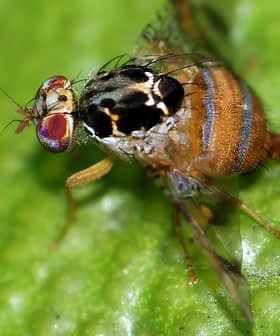New Plant Parasite Discovered in Chinese Vineyards

Researchers at a university in southwest China have discovered a new root-knot nematode species in the vineyards of Yunnan province.
We consider M. vitis to be of an equal threat as other root-knot nematodes.
The scientists from Yunnan Agricultural University still cannot say whether Meloidogyne vitis is more dangerous than other species of the widespread and deadly plant parasite.
“We consider M. vitis to be of an equal threat as other root-knot nematodes,” Yang Hu, a researcher at Yunnan Agricultural University, said last month. “Whether there are certain characteristics [that] make it particularly vicious, we don’t know yet, and further research will also be necessary.”
See Also:Olive Pest News“We need to identify root-knot nematode species so that we can carry out targeted control programs to better protect vineyards,” Hu added.
As a species, root-knot nematodes are particularly pernicious and are one of the top three economically-destructive plant parasites. The nematodes spread via running water, animals and through the transportation of infected plants or plant materials.
The root-knot nematode is not host-specific, with some species attacking more than 3,000 different types of plants, including olive trees.
Together with citrus root nematodes, root-knot nematodes are historically responsible for losses of five to 10 percent of olives in the United States – with the latter accountable for five percent of global crop damage.
When the researchers collected roots and soil from local vineyards, they found 90 percent of the roots were infected with root-knot nematodes.
After studying the samples they had collected, the scientists then discovered that the parasite had perceptibly distinct features from other root-knot nematode species. After further research, they identified it as a separate species.
The researchers at Yunnan found that the roots of grapevines affected by M. vitis at first exhibited slight swelling and then began to rot. This impacted the quality of the grapes and led to significant reductions in yields.
In olives, damage caused by root-knot nematodes varies slightly in each tree’s roots and is influenced by factors such as soil texture.
Root-knot nematodes can adversely affect the size of olives and one of the visible signs is sickly-looking trees concentrated in some areas of an olive grove. However, the damage caused by the parasites is not always easy to identify.
Rising temperatures, increasing carbon dioxide levels and changing seasons associated with climate change are predicted to accelerate the nematodes’ life cycles.








